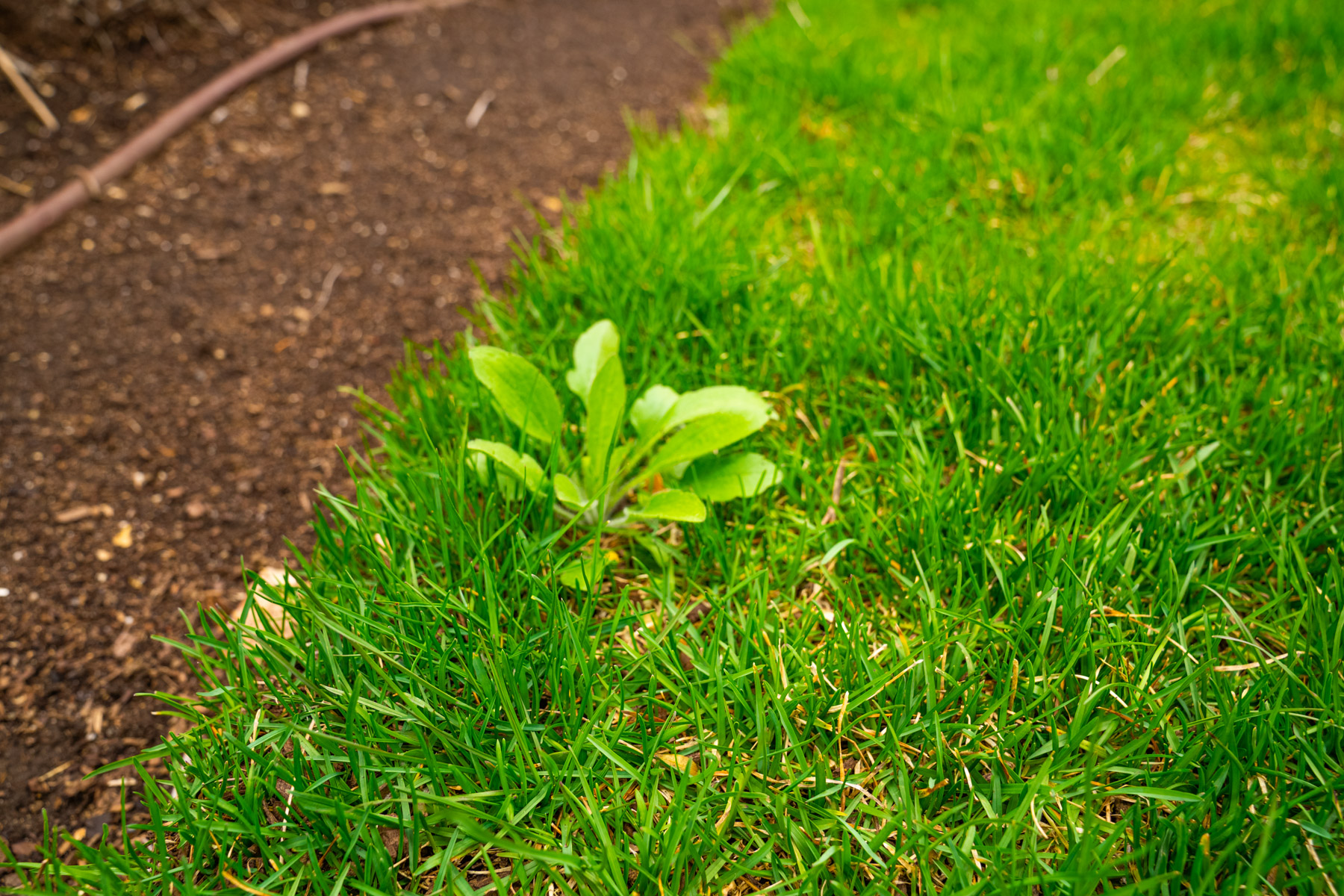
How to Keep Weeds Out of Your Lawn Year-Round in New England
Here in New England, different weeds can pose problems at different times of the year. Even if you feel like you’re doing all the right things, weeds can still creep in and take away from the beauty of your lawn.
We know that weeds growing in grass can be a major source of frustration. You want a lawn that you’re proud to show off and weeds can detract from that. Unfortunately, many New England weeds can be quite aggressive which is why you need an effective weed control plan that includes different, proactive seasonal approaches.
In this article, we’ll talk about how to keep weeds out of the lawn with an effective weed control program.
We’ll cover:
Why Are Weeds So Hard to Eradicate?
Strategies to Prevent Lawn Weeds and Stop Weeds From Growing
Choosing Lawn Care in Southern NH, Northeastern Massachusetts, and Southern Maine
After reading this article, you’ll have a good sense of what’s required to fight back against pesky lawn weeds.
Why Are Weeds So Hard to Eradicate?
Weeds can be a pretty complex issue. There are a lot of reasons why weeds can be difficult to get rid of - or why it seems like they keep coming back regardless of what you do.
Some of the reasons why it may seem as though you’re failing to stop weeds from growing include:
Some weeds are highly aggressive.
As you probably already know, some weeds spread faster than others and are also harder to get rid of. While some weeds seem to just grow in patches here or there, others seem as though they spread across your entire lawn - almost overnight! Clover is an example of a weed that can be a very aggressive grower. Certain weeds might require repeated applications.
You aren’t using the right control products.
There are some weeds that require specialty controls. In addition, while you want to use selective controls (those that target weeds and won’t harm grass) to stop weeds from growing, not all weeds can be controlled selectively.
You aren’t treating them at the right time.
Different weeds grow at different times of the year, so your approach needs to change. Successful New England weed control means targeting them at the right time for our climate. Trying to take a “blanket approach” to weed control might be holding you back.
You aren’t using high-quality weed control products.
As with all lawn care products, there are varying degrees of quality in weed control products. If you (or your lawn care professional) are using low-quality products, they might not be effective enough.
You have soil health issues.
In order to stop weeds from growing you not only need high-quality weed control products (applied at the right time), but you also need to correct soil health issues. If your soil is compacted or your lawn is growing very thin in areas, it’s going to be more prone to weed growth..jpg?width=1800&height=1350&name=aeration%20plugs%20in%20grass%205%20(1).jpg)
You’re not mowing or watering properly.
Your lawn care habits have more impact on weed growth than you may realize. Mowing grass too short, cutting with dull blades, or less-than-optimal watering practices can all contribute to conditions that allow weeds to take over.
As you can see, there is a lot at play when it comes to how to control lawn weeds. It’s a much more complex issue than just throwing down some weed control and hoping for the best.
Strategies to Prevent Lawn Weeds and Stop Weeds From Growing
There are several things to keep in mind as you aim to prevent lawn weeds and also address those that may already be present.
Here are a few key considerations.
Take a Comprehensive Approach
As we’ve mentioned, an effective weed control program is one that is varied with different products for different weeds (as well as for different times of the year). It helps to have a good understanding of what types of lawn weeds pose a problem here in New England and making sure that your program covers them. Some common culprits include clover, crabgrass, chickweed, oxalis, and dandelions, to name just a few.
Some common culprits include clover, crabgrass, chickweed, oxalis, and dandelions, to name just a few.
Make sure you are using high-quality products that will be optimally effective against whatever weeds you’re dealing with.
Use a Mix of Pre-Emergent and Post-Emergent Controls
You also want to make sure that your weed control program has a mix of pre-emergent and post-emergent controls.
Pre-emergent weed control works by preventing weeds from germinating in the first place. These products create a barrier that stops germination from occurring. It’s a proactive approach that plays a really important role in preventing certain weeds, like crabgrass.
Unfortunately, pre-emergent products do not work on all varieties of weeds, which is why other weed control products are so important. As the name implies, post-emergent herbicides work on weeds that have already germinated. Even though we aim to prevent as much crabgrass with pre-emergent as possible, there is often breakthrough growth and post-emergent crabgrass control is also required.
As the name implies, post-emergent herbicides work on weeds that have already germinated. Even though we aim to prevent as much crabgrass with pre-emergent as possible, there is often breakthrough growth and post-emergent crabgrass control is also required.
Practice Good Lawn Care Habits
The best weed control strategy also emphasizes good lawn care habits. That’s because the best way to defend your lawn from weeds is to have a thick and healthy turf that makes it challenging for them to grow.
This means filling in thin areas or bare patches with annual lawn aeration and overseeding. Since weeds tend to creep into bare spots where they don’t have to compete with healthy turf, thickening up your lawn will be a natural way to choke them out and prevent lawn weeds in the future.
Other healthy lawn habits that encourage a thick turf include regular lawn fertilization as well as addressing any problems (like pests or disease) that will threaten the health of your turf.
Proper Mowing and Watering Come Into Play
Established lawns typically require around one to two inches of water per week. In the springtime when it is rainy, Mother Nature might be supplying that. But during periods of drought, you may need to step up your watering efforts.
As far as mowing, you want to ensure you’re cutting the lawn to the proper height (and not cutting too much at once). Cutting the lawn too short can put tremendous stress on it and might lead to weed breakthrough.
Choosing Lawn Care in Southern NH, Northeastern Massachusetts, and Southern Maine
At the end of the day, when your lawn is growing thick and healthy, it’s going to be less likely to be invaded by weeds. That’s why you’ll want to consider investing in a lawn care program that not only incorporates an effective weed control strategy but also includes other important services like aeration and fertilization.
It’s a lot to figure out on your own, but partnering with a pro will remove those burdens from your shoulders.
At Seacoast Turf Care, we take New England weed control seriously. We provide lawn care services in Southern NH, Southern Maine, and Northeastern Massachusetts that help to promote healthy lawns without weeds.
We know lawn weeds are often one of the biggest sources of frustration for homeowners. We take a science-based approach to all of our lawn care services. That includes promoting a thick and healthy lawn that is going to start to naturally choke out weeds on its own.
Soon, you’ll be able to enjoy more time on your lawn without stressing over weeds.
Ready to be where the grass is greener, healthier, and free from weeds? Get lawn care pricing for your Southern New Hampshire, Maine, or Massachusetts lawn.


